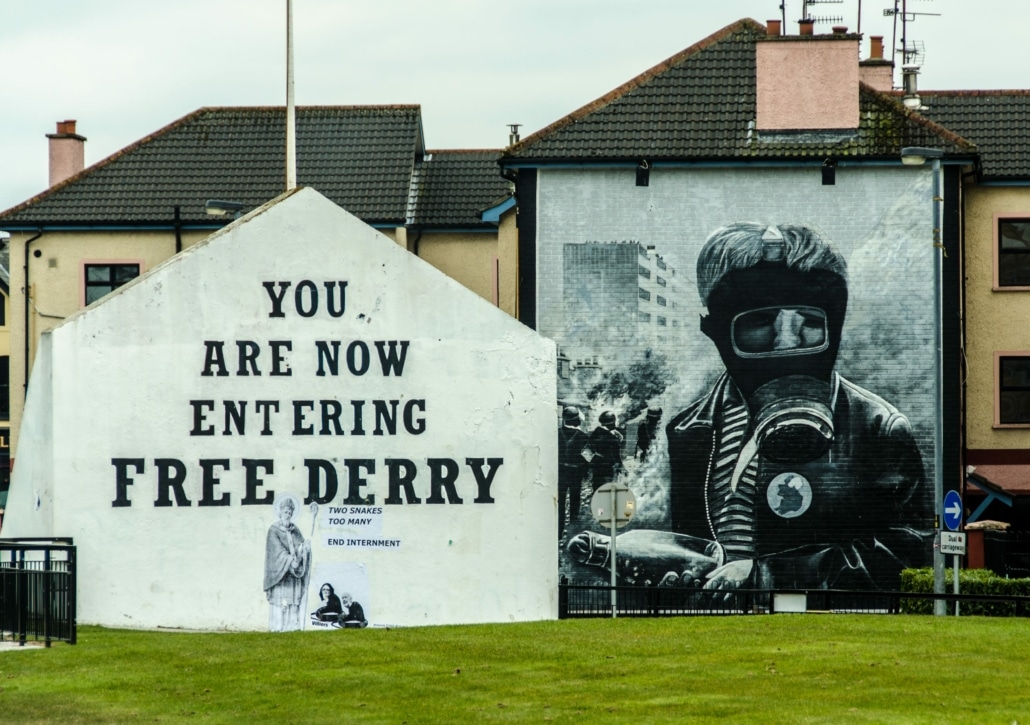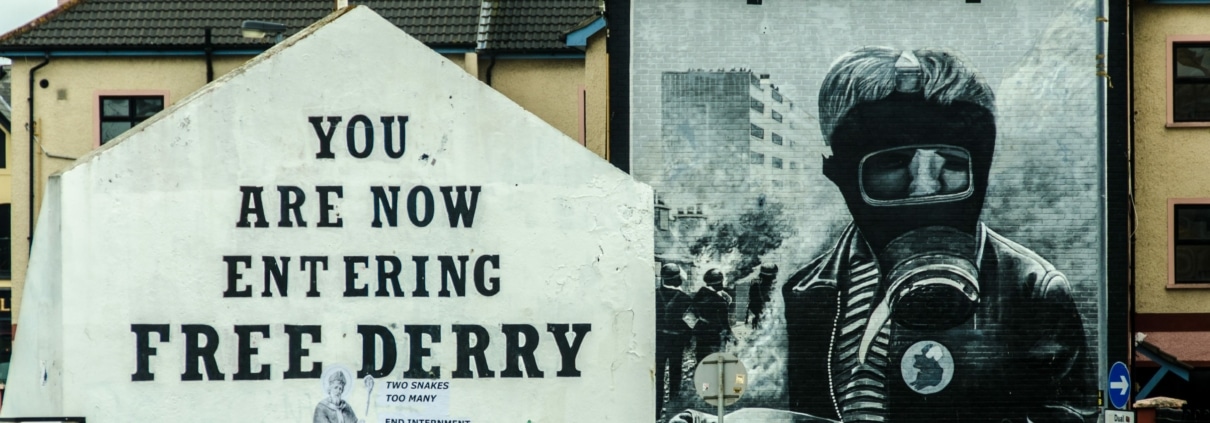The U.K. Government’s Sweeping Amnesty Proposal Is Seriously Flawed

Last month, the British government announced a sweeping and ill-considered amnesty proposal designed to slam the door on any form of legal or public accountability for the political violence that plagued Northern Ireland for three decades. Out of a population of 1.5 million people, more than 3,500, mostly civilians, were killed and more than 40,000 injured during the Troubles. The proposed amnesty would foreclose efforts to honestly acknowledge official misconduct during this period, an essential ingredient to building a rights-respecting future.
The Troubles began in the late 1960s and continued until the 1998 Good Friday Agreement was signed by the United Kingdom, the Republic of Ireland and the major political parties in Northern Ireland. Northern Ireland, which is still part of the UK, has made notable strides since then, drawing on commitments made through the Good Friday Agreement to reform the police, promote greater equality and power sharing, and reduce political violence. Though political and social divisions are still prominent and unresolved, Northern Ireland is strikingly more peaceful and prosperous than it was two decades ago.
The amnesty proposal obfuscates the essential truth.
Now on the heels of increasing political instability in Northern Ireland caused by the UK’s withdrawing from the European Union, British Prime Minister Boris Johnson’s government risks further undermining the peace by proposing a sweeping amnesty law which it claims will put past abuses to rest. Almost certainly, the proposed amnesty would have the opposite effect, fueling long-simmering anger from victims and their families and those who are frustrated by the British government’s continued refusal to acknowledge the truth about its past conduct. Experiences from a range of countries in post-conflict situations make clear that those who fail to acknowledge serious human-rights violations in their past will not achieve a more stable and democratic future.
The amnesty Johnson is proposing would preclude a sufficient acknowledgement of the British government’s past actions. It would end criminal prosecutions, police investigations, and coroner inquests of all conflict-related offenses, including those carried out by illegal paramilitary groups like the Irish Republican Army. It also would bar families from seeking civil damages against government authorities, derailing scores of current court cases. The scope of this proposal is far more extensive than the amnesty law adopted by General Augusto Pinochet in Chile in the 1970s or other similar laws adopted by other transitional governments. It will seriously undermine the Good Friday Agreement, which was rooted in the British government’s ongoing commitment to respect human rights.
Trying to justify its approach, the British government has argued that “any process that focuses on the lengthy pursuit of retributive justice will severely hold back the successful delivery of a way forward.” In a report presented to Parliament in July, British Secretary of State for Northern Ireland Brandon Lewis proposed a vague combination of “information recovery, mediation, and reconciliation” as the best way to provide justice to the families of victims. Lewis asserted that this combination will be more effective than what is “currently achieved through the criminal justice system.”
Subscribe to the Ethical Systems newsletter
Email subscription
This analysis is misleading in suggesting that the only option today is criminal prosecution when in fact there are a mix of criminal and civil remedies available. It obfuscates the essential truth that the British government has fiercely resisted publicly acknowledging the violations its agents committed during the Troubles. To protect its own agents from scrutiny, it is now proposing an amnesty in every case linked to the Troubles.
In the 1990s, while at Human Rights First, I called for a full investigation of the murder of Patrick Finucane, a Belfast lawyer who represented clients accused of political violence. Finucane had been murdered in his home in front of his family in 1989. There is strong evidence that members of the British Army and the Royal Ulster Constabulary were both involved in his murder and that senior British officials participated in a cover-up of this involvement. Yet for 30 years, British officials have gone to great lengths to avoid acknowledging what happened or to take full responsibility for it. The package of remedies Lewis is proposing—information recovery, mediation, and reconciliation—is not designed to provide a truthful accounting of what happened in Finucane’s murder, or in scores of other cases in which rights were violated.
The demand for truth and official acknowledgement should not be seen as an effort to imprison aging former police and military officers for violations they committed decades ago. This will not happen. To prevent future abuses, the British government needs to come to terms with the serious abuses committed by its security forces during the Troubles.
Pepe Zalaquett, a prominent Chilean human-rights lawyer who once led Chile’s Truth and Reconciliation Commission, underscored the importance of truth telling when he observed that “acknowledgment is very important in the sense that you say, This is wrong. Now, we admit that we did it, and we shouldn’t have done it, it would never happen again, we will take the [corrective] measures.” This is the prescription for what the British government needs to do to address its role in Northern Ireland’s violent past. The proposed amnesty law is seriously flawed and opposed by every major political party in Northern Ireland and the Irish Government. The Biden Administration and others in the international community who are committed to human rights should strongly urge Boris Johnson to abandon it.
Michael Posner is the Jerome Kohlberg professor of ethics and finance at NYU Stern School of Business and director of the Center for Business and Human Rights. Follow him on Twitter @mikehposner.
Lead image: Philip c reed / Flickr
Reprinted with permission from Forbes.



